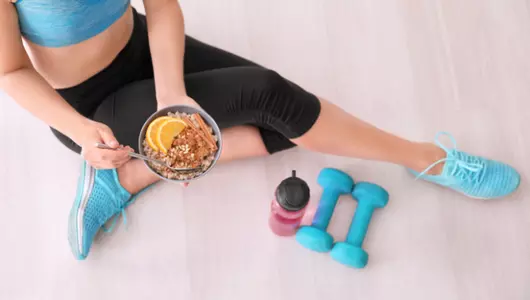Low-fat, light and diet foods are everywhere, but do they really help you lose weight?
The shelves at the grocery store are saturated with products that scream "light," "diet," and "low fat." When you're trying to lose weight, it can be tempting to turn to the low-fat brownie or light ice cream in an attempt be healthier or cut calories while indulging. But do they really help you lose weight? The answer is probably no, for a variety of reasons.
- They aren't actually healthier. Low-fat or "light" products usually decrease one ingredient, but increase another. Low-fat salad dressing is higher in salt than regular, and also contains added sugar. Food producers know that if they decrease one tasty ingredient, they need to increase others to maintain palatability. So just because the label says "light" does not mean it is healthy.
- Low-fat does not mean low-calorie. To lose weight, there needs to be a caloric reduction. If the low-fat choice has the same amount of calories, you will not make a caloric deficit and you will not lose weight. It's also important to note that fat provides satisfaction and improved palatability. Eating a low-fat food often leaves us unsatisfied and looking for more, increasing overall calorie intake.
- They're easier to overeat. How many times have you told yourself you could have more of the low-fat food than you would have if they were real ones? We cast a "health halo" around foods, and this halo actually makes us more likely to over eat those foods. We give ourselves permission to overindulge because it's "good for us," when this may actually not be the case.
The bottom line is be honest – does the low-fat version of a food taste as good as the real thing? Are you really satisfied with just one serving? If you end up eating more just because it's "light" or "healthy," wouldn't you be better off with the real thing right from the start? Choose your indulgences wisely, in moderate portions. You will be happier and more likely to lose weight than by trying to survive on fake filler foods.
Related articles

Protein takeover: How much is really needed per day?

What exercise burns the most calories?

The link between nutrition and your mental health

How much fiber does my child need?

